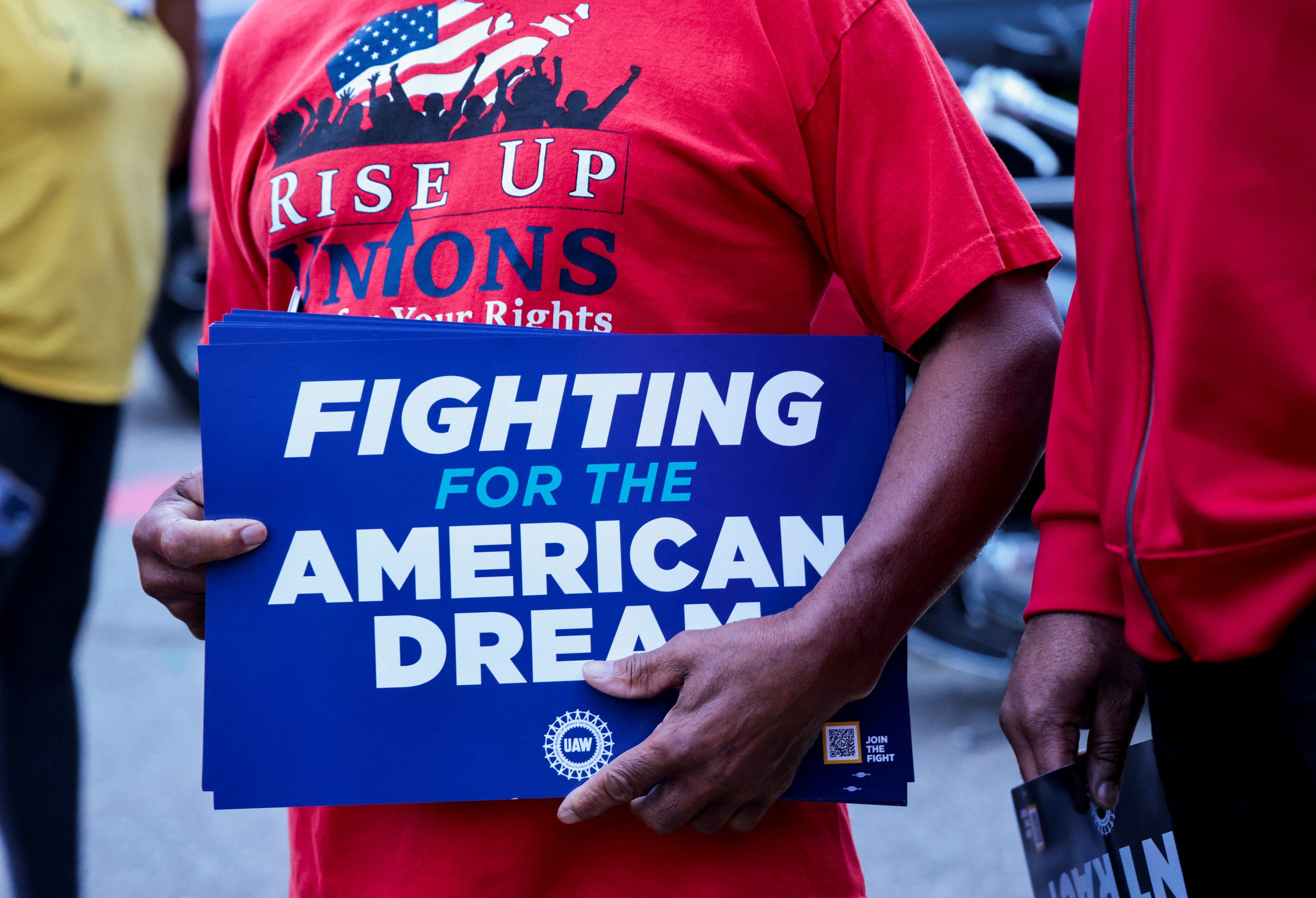Unionized workers at America’s Big 3 automakers could be on strike as of Sept. 14. The 146,000 members of the United Auto Workers and their pugnacious president, Shawn Fain, are ready to rumble. For the first time, the UAW has not yet chosen a “target” company against which to strike but has threatened to walk off the jobs at all three at once.
What do they want?
The UAW is demanding a 46% pay raise, a 32-hour week with 40 hours of pay, and a restoration of traditional pensions. In response, Ford offered a 9% wage increase and one-time lump-sum payments, for a total raise of 15% over four years. Stellantis and GM have yet to file counterproposals, leading to the UAW recently filing charges of unfair labor practices against them.
What would a strike do to the US economy?
The auto biz makes up 3% of US GDP. A tripartite 10-day strike could cost workers and employers $5.6 billion. During a 40-day UAW strike in 2019, GM alone lost $3.6 billion. The union’s strike fund is estimated to last about three months, so this could be a long haul.
Canada’s 18,000 autoworkers and their union, UNIFOR, have also voted to strike on September 18, but will only target Ford. Analysts predict this could impact the Canadian supply chain and raise vehicle prices, further fueling inflation.
What are the political implications?
The strike puts US President Joe Biden between a rock and a hard place, just in time for a presidential election year. His focus on electrifying America’s vehicle fleet has sparked workers’ fears of wage and job cuts, as EVs require fewer and lower-skilled employees to produce.
The conflict is also playing out as part of a larger class war that is shaping politics around the globe. The Big 3 collectively posted income of $164 billion over the past decade and their CEOs earn multi millions annually. Fain has bitterly complained about one standard for the corporate class and another for ordinary workers. So far, he has refused to endorse Biden, but also said that the return of Republican Donald Trump would be “a disaster”.
What’s next?
Biden recently named a White House liaison to the union and the automakers. He claims a strike can be averted, but faced with the two sides so far apart, most industry watchers believe a strike is inevitable. As one Michigan analyst put it, “President Fain has declared war, and that usually means there’s going to be a battle, and that battle would be a strike.”
More For You
Mastercard Economic Institute's Outlook 2026 explores the forces redefining global business. Tariffs, technology, and transformation define an adaptive economy for the year ahead. Expect moderate growth amid easing inflation, evolving fiscal policies, and rapid AI adoption, driving productivity. Digital transformation for SMEs and shifts in trade and consumer behavior will shape strategies worldwide. Stay ahead with insights to help navigate complexity and seize emerging opportunities. Learn more here.
Most Popular
Despite a ceasefire in Gaza, Israel is still not letting foreign journalists in to independently verify what’s happening on the ground, CNN’s Clarissa Ward tells Ian Bremmer on GZERO World.
On Ask Ian, Ian Bremmer breaks down the steady escalation of US pressure on Venezuela and why direct military action is now a real possibility.
From civil conflicts to trade wars to the rise of new technologies, GZERO runs through the stories that have shaped this year in geopolitics.
